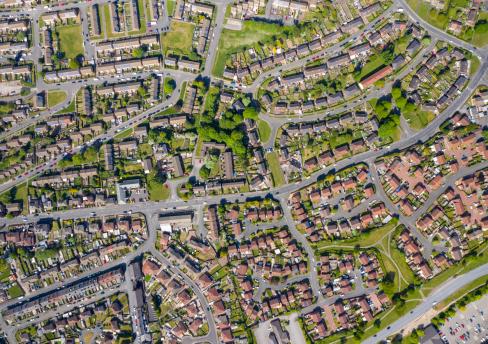In November, we had the opportunity to host a panel discussion in the form of a hybrid event on 'ESG and Placemaking' organised by Women In Property Scotland. The panel was made up of engineers, architects and planning and transport experts from Civic Engineers, Architecture & Design Scotland, Hawkins Brown and The City of Edinburgh Council.
Our perception of the term 'real estate' is influenced by daily exposures to advertisements and tv series correlating it with profits and capital growth. Spending my formative years in Hong Kong, the idea of designing and building a city that focuses on the importance of its neighbourhood and community was a foreign concept. Perhaps it is different now, but infrastructure and planning there in the early noughties was often aimed at building the next biggest shopping mall or the tallest skyscraper.
In essence, Placemaking's outcome is place-based. In 2019, the Place Principle was adopted by the Scottish Government and COSLA to "help overcome organisational and sectoral boundaries, encourage better collaboration and community involvement, and improve the impact of combined energy, resources and investment." More details can be read online on the Scottish Government website. This collaborative work approach is intended to attract more talents from different sectors who will work together at local and regional levels led by the Scottish Government to improve services, layouts and amenities in neighbourhoods across Scotland. This also envisages a higher rate of sustainable and inclusive economic growth while providing a safer and friendlier environment for the public.
ESG's objective is to create and utilise spaces to provide a more sustainable and community-friendly environment for the public. We now see developers, planners and businesses take on more social and environmental responsibilities in a time when climate change and environmental issues need to be addressed to mitigate risks of causing irrecoverable damage to our planet. Various sectors such as architects, engineers and local authorities are working collaboratively to facilitate this objective.
During the event, Civic Engineers introduced some of the projects they are working on in Scotland that resonate with ESG and Placemaking. The Glasgow Avenues project, for example, will see Glasgow's streetscape transformed with a better network of pedestrian and cycle routes across the city. The project envisages improved lighting features, continuous footways and reduced street clutter to make the city more 'people-friendly'. The installation of rain gardens which in itself is a smart and eco-friendly drainage system will filter rainwater, deal with flood risk impact and also add to the greenery in the city centre.
Projects such as the redevelopment of a historic A listed building (Custom House) in Glasgow and a health innovation hub in Govan were described by Hawkins Brown. The redevelopment of Custom House into a four-star hotel overlooking the River Clyde with a suite of restaurants and bars on street level. The refurbishment aims to beautify and re-urbanise the neighbourhood in central Glasgow and provide a pedestrian friendly environment for the wider community in Glasgow.
There was also discussion about the regeneration of Edinburgh's city centre with a "20 minute neighbourhood" programme, which objective is gaining popularity especially after the pandemic. The idea here is that places are created where everyone can meet most of their daily needs within a short walk or cycle from their home - within a 20- minute round trip. The wider scheme to re-urbanise George Street in Edinburgh had been met with some controversy. Concerns were raised about whether the installation of trees could affect Edinburgh's New Town's World Heritage Site status. The current proposals consist of greenery in planters in George Street but no trees. The idea is to lower car dependency and encourage people to cycle and use public transport, which reduces carbon footprint and increases the greenery in Edinburgh.
After the panel discussion, I spoke with several engineers, architects and planning experts who attended the event. Everyone was very enthusiastic that their ideas and visions are materialised to provide a better and friendlier neighbourhood for the community in projects that they have worked on. As we can see, the benefits of ESG and Placemaking are manifold. Perhaps in ten to twenty years (or fewer), cities in Scotland will be greener, more sustainable, beautiful and safer for their residents and visitors.
The content of this webpage is for information only and is not intended to be construed as legal advice and should not be treated as a substitute for specific advice. Morton Fraser LLP accepts no responsibility for the content of any third party website to which this webpage refers. Morton Fraser LLP is authorised and regulated by the Financial Conduct Authority.










